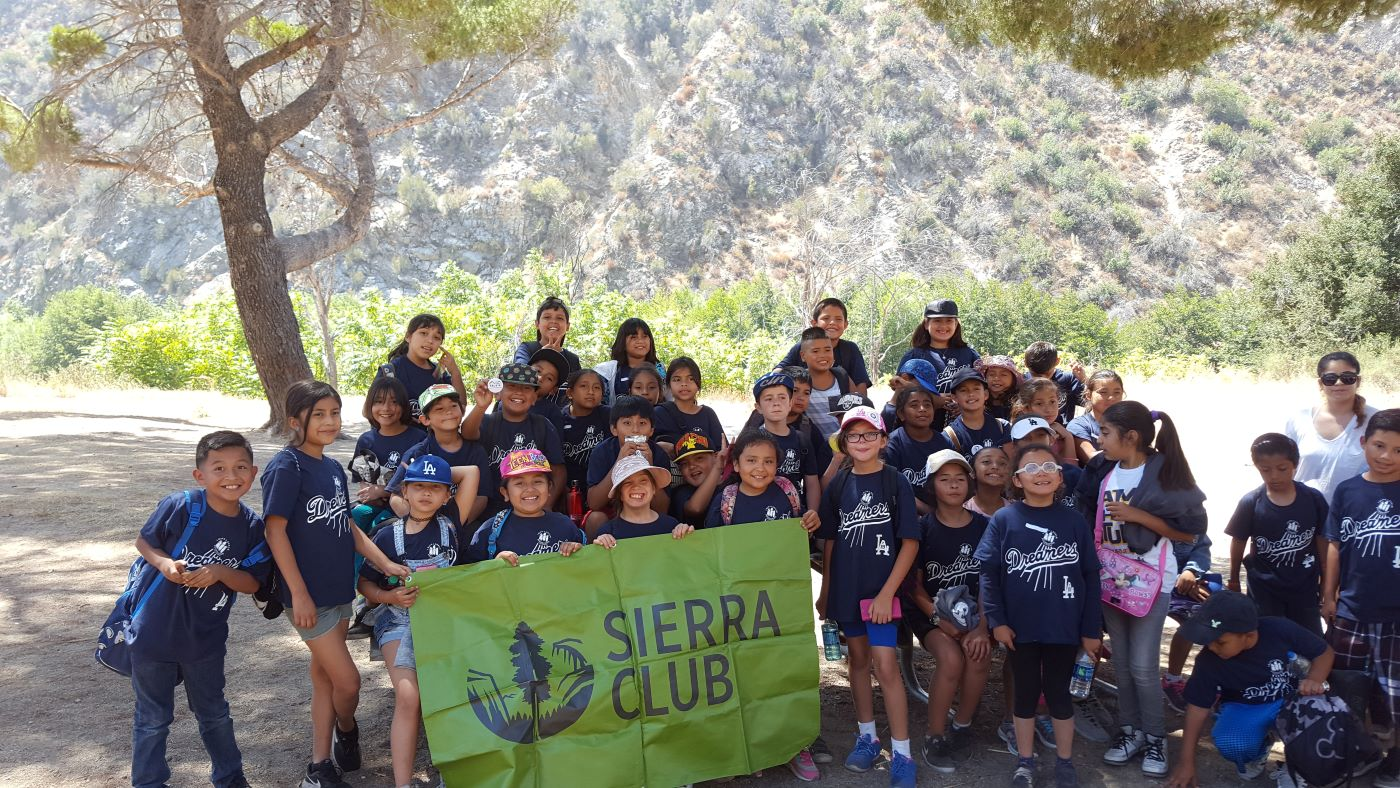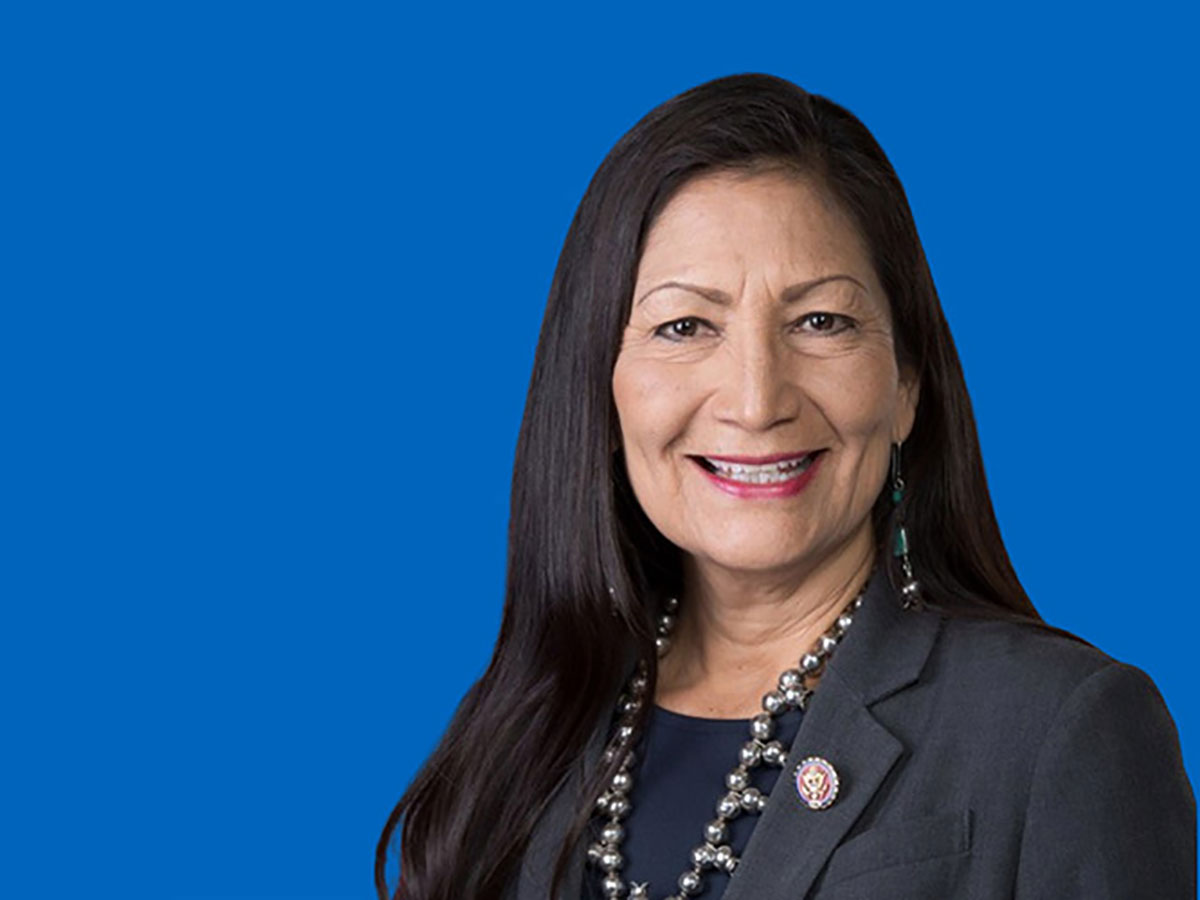Last week, Deb Haaland was confirmed as the first Native American Secretary of the Interior in a historic moment for this country. An enrolled member of the Laguna Pueblo Tribe, Haaland was one of the first two Indigenous women elected to Congress in 2018. Now, she’ll be leading the agency that manages one-fifth of American lands, including national parks and wildlife refuges; 1.7 billion acres of coastline; natural resources; and endangered species protections. She’ll also oversee the federal agencies that work most directly with Native nations, including the Bureau of Indian Affairs.
As Interior Secretary, Haaland will work to address climate and environmental injustice while elevating Indigenous voices. Her leadership will help usher in a new era of the conservation movement— one that we hope will be guided by principles of equity and inclusivity; where historically marginalized voices are centered and heard; and where progress will truly be driven by grassroots movements and community priorities. Secretary Haaland’s leadership also gives us a chance to correct course after four years of pro-polluter policies instituted by the Trump administration, and to reshape an agency that has failed to meaningfully collaborate with Tribal Nations despite its trust responsibilities.
Even before Secretary Haaland’s confirmation, the Biden administration signaled its commitment to a community conservation agenda where local voices are prioritized in the work to protect public lands, waters and wildlife. In its first days, the administration endorsed the effort known as 30x30, which seeks to protect 30 percent of lands and waters in the United States by 2030. This will not only support our environmental goals, but can improve communities’ health and create secure, family-sustaining jobs in outdoor recreation and ecosystem restoration. Reclaiming abandoned oil and gas wells on public lands, restoring lands, waters and wetlands, and cleaning up towns on the frontlines of pollution could mean hundreds of thousands of new jobs for fossil fuel workers and more. With the will and the support of local communities, this administration can take action on the climate crisis in a way that centers local needs and realities.
This new administration offers a chance to influence the conservation agenda, win protections for our local parks and remote wilderness alike, and increase the amount of green space in our neighborhoods. It also gives us an opportunity to do conservation work better. We must center the sovereignty of Tribal Nations, as well as Indigenous and local knowledge in decision making. We are confident that Secretary Haaland, an original cosponsor of the 30x30 legislation, will play a key role in making it a reality, given her history of fighting for climate action, working with diverse stakeholders, and prioritizing equity.
Right now, we are enthusiastic about a massive community-led effort already gaining ground: the Protecting America’s Wilderness and Public Lands Act (PAW+). This month, the House of Representatives passed this monumental environmental legislation, which consists of a collection of lands and waters protections that communities have been working on for years. These new safeguards will protect places near neighborhoods and urban centers, as well as landscapes that provide important wildlife habitat, support tourism economies, and draw carbon out of the atmosphere— helping mitigate the climate crisis. If signed into law, it would bring us closer to our goal of protecting 30 percent of our lands by 2030.

I Have a Dream Foundation outing in 2018. | Photo by Roberto Morales, Sierra Club
PAW+ encompasses eight bills, including one that would protect the land around the Grand Canyon from extractive mining. It would end Indigenous communities’ decades-long battle to halt uranium mining around the Grand Canyon. Those most affected by the toxic legacy of uranium pollution will be the ones helping stop it. In California, PAW+ will expand the San Gabriel Mountains National Monument and increase access to outdoor recreation for communities in Los Angeles. These efforts show that land conservation is deeply connected to and must continue prioritizing environmental justice.
A new era for the conservation movement has been a long time coming. Throughout the history of the Sierra Club and the conservation movement, there have been abuse and mistakes that have further marginalized Indigenous people and hurt communities. We must learn from our past mistakes and repair the harm done by not only collaborating with frontline and Indigenous communities, but following their lead on conservation initiatives.
Under this new administration, and with new leadership at the Department of the Interior, voices calling for protections for the places they call home are being better heard. Tribal Nations are winning fights to protect their ancestral lands and sacred sites, anti-environmental policies are being undone, and communities are setting the agenda to protect green space, waters and public lands.
We must continue this momentum by calling on our elected officials to support legislation like PAW+, and working with Haaland and the department she now leads to conserve more of our lands and waters, with a greater emphasis on justice, equity, and Indigenous sovereignty. That work will include making public lands more accessible and welcoming to all, engaging Tribes in the management of their sacred sites, restoring the national monuments the Trump administration slashed in size, pausing new oil and gas leasing on public lands, and making our public lands part of the climate solution.
The Sierra Club is fighting to ensure that we all have a say in our collective future. The conservation choices we make today in response to climate change will determine the health of the lands and waters we treasure, the abundance of natural resources that sustain us, and our future viability as stewards of our planet.
